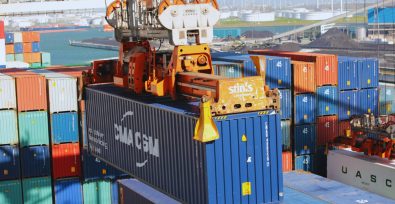Since 2021, when the U.S. passed the Uyghur Forced Labor Prevention Act (UFLPA), dozens of companies have been blacklisted over their alleged links to forced Uyghur labor. But in “the land down under” The Guardian reports it’s business as usual as thousands of imports banned in the U.S. flood across the border and into Australian markets.
Scale of imports as “astounding”
When the U.S. passed the UFLPA four years ago it was arguably the strongest forced labor law in recent years. It was seen as a possible bellwether. Other nations would follow suit and ban companies on the official “Entity List”. Conversely, since then imports to Australia from at least eight of the banned companies have only increased.
Nurgul Sawut, an Australian Uyghur activist campaigning for the federal government to ban imports from companies with alleged links to Uyghur forced labor said:
“If we look at it from international perspective, there’s very little to no action whatsoever, trying to ban or even paying attention to any products … [that are] actually produced by forced labor.”
Indeed, the recent investigation found thousands of imports flooding into Australia. All from Chinese companies blacklisted by the U.S. over alleged links to forced Uyghur labor. Accordingly, these imports range from car batteries and trains used by state governments to safety gear for tradespeople, spices and food additives, and laser printers.
The next level of grieving
The investigation represents the first time the scale of Australia’s imports from companies accused of association with Uyghur forced labor has been documented. Unsurprisingly, relatives of those detained as part of the Chinese government’s crackdown on Uyghurs feel Australia’s non-action is just another layer of grief.
Ramila Chanisheff, the president of the Australian Uyghur Tangritagh Women’s Association said:
“It is frustrating…why are we falling behind, why are we not divesting from these companies to ensure we are not complicit? It is in the hands of our government and the industries to ensure that these goods do not come in.”
According to Chanisheff, the Uyghur community is struggling to understand. How could Australians buy and use products made in a forced labor program that targets their relatives and friends? Australian Uyghur groups say by not acting, Australia is complicit in China’s use of forced Uyghur labor.
Chanisheff shared:
“It makes us even sadder … it’s the next level of grieving, it’s almost like we live in the same society, yet … with the people’s lives, it doesn’t really matter. It’s something disposable.”
The Modern Slavery Act is Australia’s closest equivalent legislation to the UFLPA. It’s designed to compel some large businesses to report annually on how they are dealing with forced labor in their supply chains and operations. However, experts say when forced labor is driven by state policy, it must be treated differently. Accordingly, Australian rights groups are demanding the foreign minister intervene.
“It’s having an impact, but it’s only the U.S. doing it”
According to Adrian Zenz, a German academic who is one of the foremost experts on forced labor in the Uyghur region, the measures put in place by the UFLPA have been effective. The laws helped trigger foreign divestment from the region. Reports show entities targeted by the legislation had decreased exports for geopolitical reasons. Conversely, Zenz described the efforts of the UK, Canada and Australia as “completely inadequate”.
Zenz stated:
“Countries like Australia absolutely must enact effective policies in order to avoid complicity with this atrocity, helping to basically finance Xinjiang’s police state by allowing the state and its state-owned enterprises or private enterprises to make money off the back of Uyghur workers,”
Currently the UK, Canada and Australia all rely on reporting requirements through modern slavery laws. But more needs to be done to end Uyghur forced labor and you can help. Read more about the specific situation in Xinjiang and about Uyghur forced labor on our campaign FAQ page. Then if you haven’t already, sign Freedom United’s petition calling on the Chinese government to free Uyghurs from forced labor. Add your voice to the growing shout from civil society to cement real change.







Freedom United is interested in hearing from our community and welcomes relevant, informed comments, advice, and insights that advance the conversation around our campaigns and advocacy. We value inclusivity and respect within our community. To be approved, your comments should be civil.
Hi Kristin, thank you for the suggestion; we are working on this. In the meantime, you can follow us on bluesky here: https://bsky.app/profile/freedomunitedhq.bsky.social
Could you now include Bluesky in your sharing apps – any followers have now moved away from X to Bluesky